Professionally Mandated Reporter Online Training
Animal Control Officers in the State of Florida are considered mandatory reports for suspected child abuse. To ensure Animal Control Officers are familiar with their statutory requirements, they must successfully complete the 1-hour course created by the Department of Children and Families.
To complete the mandatory training follow the link HERE
828.27 Local animal control or cruelty ordinances; penalty.—
(4)(a)1. County-employed animal control officers must, and municipally-employed animal control officers may, successfully complete a 40-hour minimum standards training course. Such course must include, but is not limited to, training for animal cruelty investigations, search and seizure, animal handling, courtroom demeanor, and civil citations. The course curriculum must be approved by the Florida Animal Control Association. An animal control officer who successfully completes such course shall be issued a certificate indicating that he or she has received a passing grade.
2. County-employed and municipally-employed animal control officers must successfully complete the 1-hour training course developed by the Department of Children and Families pursuant to s. 39.208(5). Animal control officers must be provided with opportunities to attend the training during their normal work hours.
39.201 Required reports of child abuse, abandonment, or neglect, sexual abuse of a child, and juvenile sexual abuse; required reports of death; reports involving a child who has exhibited inappropriate sexual behavior.—
(1) MANDATORY REPORTING.—
(a)1. A person is required to report immediately to the central abuse hotline established in s. 39.101, in writing, through a call to the toll-free telephone number, or through electronic reporting, if he or she knows, or has reasonable cause to suspect, that any of the following has occurred:
a. Child abuse, abandonment, or neglect by a parent or caregiver, which includes, but is not limited to, when a child is abused, abandoned, or neglected by a parent, legal custodian, caregiver, or other person responsible for the child’s welfare or when a child is in need of supervision and care and has no parent, legal custodian, or responsible adult relative immediately known and available to provide such supervision and care.
b. Child abuse by an adult other than a parent, legal custodian, caregiver, or other person responsible for the child’s welfare. The central abuse hotline must immediately electronically transfer such reports to the appropriate county sheriff’s office.
2. Any person who knows, or has reasonable cause to suspect, that a child is the victim of sexual abuse or juvenile sexual abuse shall report such knowledge or suspicion to the central abuse hotline, including if the alleged incident involves a child who is in the custody of or under the protective supervision of the department.
Such reports may be made in writing, through the statewide toll-free telephone number, or through electronic reporting.
2. A person making a report to the central abuse hotline whose occupation is in any of the following categories is required to provide his or her name to the central abuse hotline counselors:
a. Physician, osteopathic physician, medical examiner, chiropractic physician, nurse, or hospital personnel engaged in the admission, examination, care, or treatment of persons;
b. Health care professional or mental health professional other than a person listed in sub-subparagraph a.;
c. Practitioner who relies solely on spiritual means for healing;
d. School teacher or other school official or personnel;
e. Social worker, day care center worker, or other professional child care worker, foster care worker, residential worker, or institutional worker;
f. Law enforcement officer;
g. Judge; or
h. Animal control officer as defined in s. 828.27(1)(b) or agent appointed under s. 828.03.
(c) Central abuse hotline counselors shall advise persons under subparagraph (b)2. who are making a report to the central abuse hotline that, while their names must be entered into the record of the report, the names of reporters are held confidential and exempt as provided in s. 39.202. Such counselors must receive periodic training in encouraging all reporters to provide their names when making a report.

